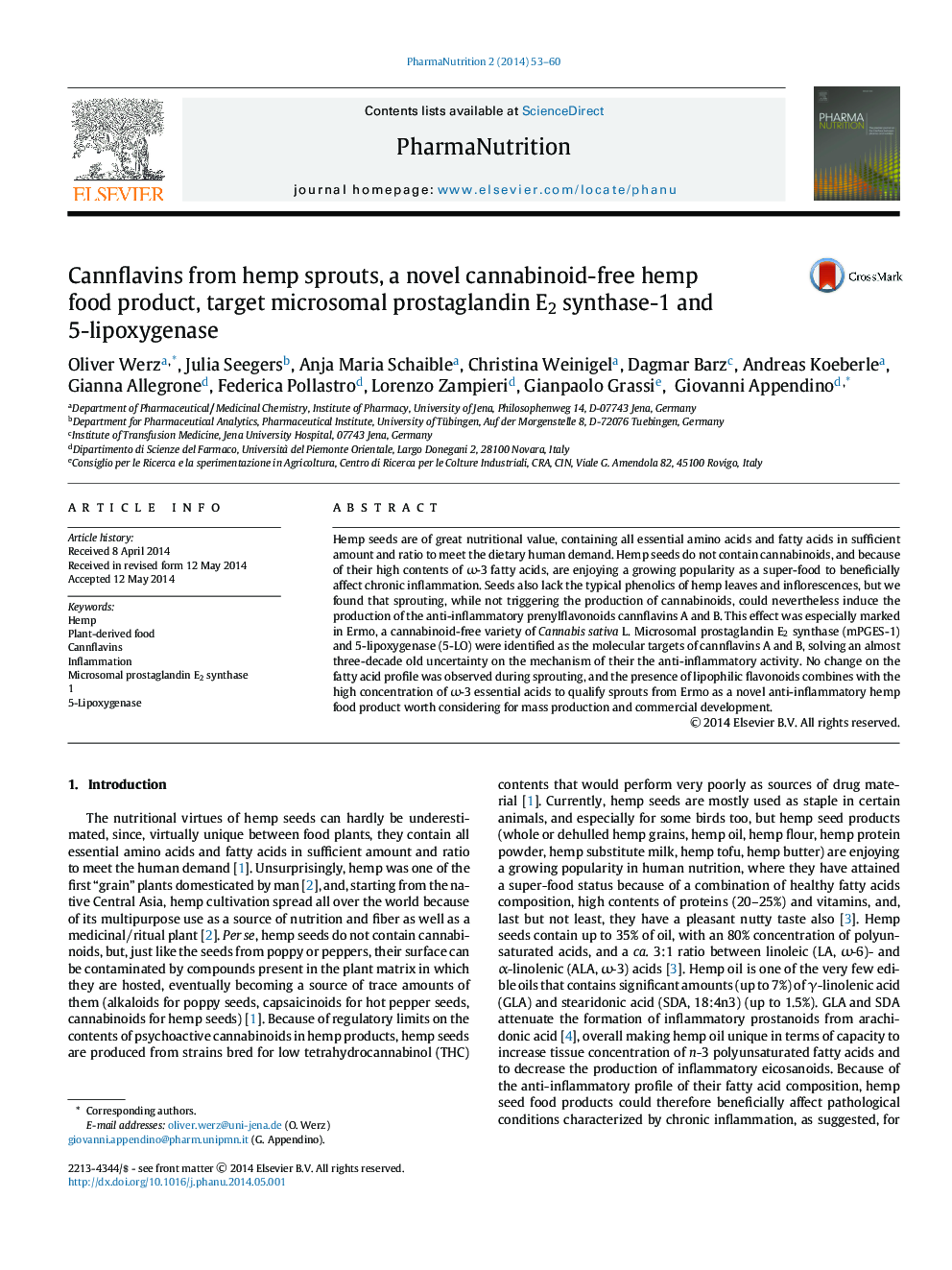| Article ID | Journal | Published Year | Pages | File Type |
|---|---|---|---|---|
| 2564433 | PharmaNutrition | 2014 | 8 Pages |
•Sprouting induces the formation of prenylated flavonoids in some varieties of hemp seeds.•Sprouting neither induces the formation of cannabinoids, nor modifies the beneficial profile of unsaturated fatty acids.•The anti-inflammatory molecular targets of the prenylated flavonoids from hemp have been identified.•The presence of anti-inflammatory prenylated flavonoids has the potential to synergize the beneficial omega-6/omega-3 ratio of hemp seeds triglycerides.
Hemp seeds are of great nutritional value, containing all essential amino acids and fatty acids in sufficient amount and ratio to meet the dietary human demand. Hemp seeds do not contain cannabinoids, and because of their high contents of ω-3 fatty acids, are enjoying a growing popularity as a super-food to beneficially affect chronic inflammation. Seeds also lack the typical phenolics of hemp leaves and inflorescences, but we found that sprouting, while not triggering the production of cannabinoids, could nevertheless induce the production of the anti-inflammatory prenylflavonoids cannflavins A and B. This effect was especially marked in Ermo, a cannabinoid-free variety of Cannabis sativa L. Microsomal prostaglandin E2 synthase (mPGES-1) and 5-lipoxygenase (5-LO) were identified as the molecular targets of cannflavins A and B, solving an almost three-decade old uncertainty on the mechanism of their the anti-inflammatory activity. No change on the fatty acid profile was observed during sprouting, and the presence of lipophilic flavonoids combines with the high concentration of ω-3 essential acids to qualify sprouts from Ermo as a novel anti-inflammatory hemp food product worth considering for mass production and commercial development.
Graphical abstractFigure optionsDownload full-size imageDownload as PowerPoint slide
